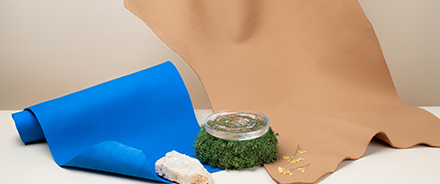In response to growing global concern about deforestation and its impact on the planet, the European Union has enacted the Deforestation Regulation (EUDR) to prevent deforestation in global supply chains, set to come into force on the 1 January 2025. Source: Timberbiz
The regulation will prohibit the import of commodities including beef, palm oil, coffee, paper and derived products, unless their origins can be traced, using geolocation data to prove that the products do not originate from recently deforested land or have contributed to forest degradation.
The use of leather within vehicle interiors makes the automotive industry a significant player in the leather market and has previously been under the spotlight for not doing enough to mitigate its deforestation risks.
There are still some areas of the automotive supply chain which fall short in addressing its deforestation footprint especially when it comes to responsible and sustainable sourcing of materials.
For more than two decades and through a host of multi-million-pound investments in its state-of-the-art production facility, Bridge of Weir has led the automotive leather industry with its commitment to traceability and efficient, circular manufacturing, adhering to the upcoming EUDR regulations.
As a business, Bridge of Weir Leather is 100% transparent, something very few suppliers can claim. They meticulously track the journey of their materials from their source, ensuring transparency and accountability every step of the way. Its commitment offers
Deforestation-free leather is not just a legislative requirement but a moral imperative. The growing support from various industries shows that the demand for deforestation-free leather is more than just a trend; it reflects an ongoing movement for ethical practices to protect the world’s ecosystem and shape a more responsible global business landscape.
Bridge of Weir Leather sets itself apart by providing confidence in its supply chain. With full traceability of its rawhides, the company already adheres to the European Parliament’s regulation, ensuring its supply chains do not in any way contribute to deforestation.
From sourcing over 98% of its rawhides locally from the UK and Ireland, all of which are a by-product of the beef and dairy industries, there’s no risk of deforestation with any Bridge of Weir Leather product.
Scottish Leather Group’s 2023 ESG (Environmental, Social, and Governance) report is a testament to showing its progress towards achieving net zero leather production by 2025 and how the business can directly support its customers’ sustainability targets. The detailed report highlights a 90% reduction in the carbon intensity of its leather over the last 20 years, as well as 100% traceability of raw materials and 77% of waste recycled in 2022.







